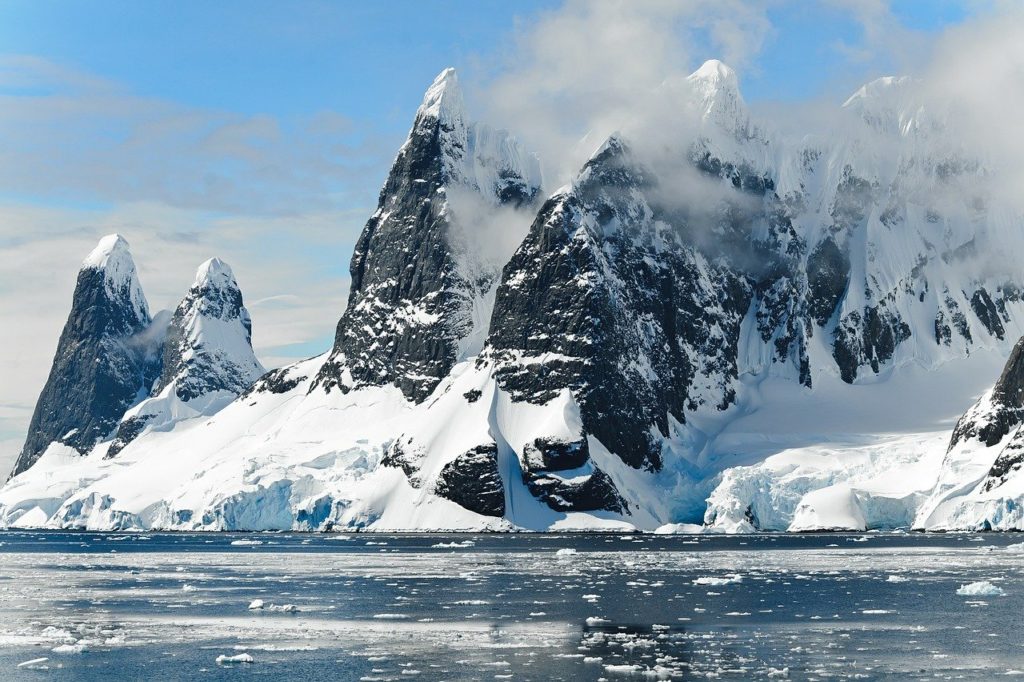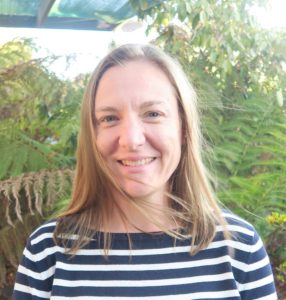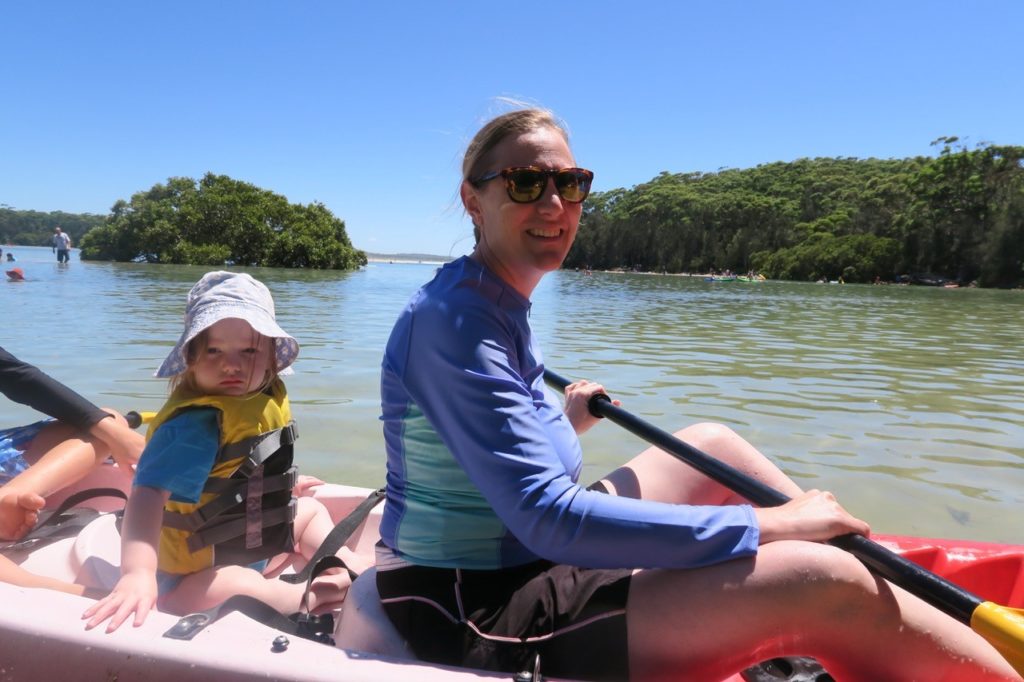
It’s a nice view right? Amelia will be seeing something like this every day as part of her Homeward Bound journey.
Amelia Tandy, Research Assistant with our Climate Science Centre, has lived overseas before. But she’s never been to Antarctica.
We chatted with Amelia about what she’s packing for the three-week Homeward Bound voyage, a women in science leadership program. We asked her about balancing work and parenting life, and why more diversity in STEM is important.
Knee-high boots for Antarctica

Amelia Tandy, a researcher here at CSIRO.
Amelia works at our Climate Science Centre. She studied marine biology, but her focus is the interface between science and policy.
“I work closely with government departments to take our science – whether is it climate modelling, oceanography, ecology and marine species research – to help inform decision-making,” she said.
Amelia will be joining hundreds of other women in STEM on the Homeward Bound voyage from around the globe. And yes, they will all be wearing knee-high boots on the boat.
“I’ll have special gumboots that can only be worn on the boat and when visiting the shore. They are knee-high so when we venture into shallow waters, our feet won’t freeze off!” she said.
Why knee-high gumboots? Antarctica has very strict quarantine rules. The boots on the boat, stay on the boat. They need to have never touched land outside the Antarctic.
With such a remote and precious ecosystem, it is critical that foreign materials and organisms don’t make their way to Antarctica to disrupt the fauna already living there.
Ice cold Antarctic climate
For this time of year, Amelia is expecting Antarctica’s weather to be in the minus temperatures. But, as she lives in Canberra, she isn’t too afraid of chilly climes.
“With so much ice around, we need lots of waterproof gear. We’ll have goose down jackets that go down to our ankles, waterproof trousers, gloves and beanies,” she explained.
“We’ll also be visiting international research stations – including Argentina, China and the US – to find out more about the research happening in this far-flung area of the world. This includes gender diversity at these stations and the challenges working in such a formidable environment.”
Diverse STEM diversity
Homeward Bound is a year-long program to increase the visibility of female STEM leaders through skills development, strategic capability and collaboration.
“When I joined the program, my focus was on promoting climate change research. Antarctica is the perfect backdrop to demonstrate the impacts of climate change,” Amelia said.
“However, as my participation in the program continues, the importance of diversity in the science arena has really come to the forefront.
“It’s not just about women in STEM that needs more visibility. Diversity also includes cultural backgrounds, sexuality, and different ways of thinking.”

Amelia Tandy and her daughter kayaking. Amelia wants to ensure a better world for her daughters.
Leader, mother, human
Amelia is a mum to two young girls, aged six and four. Being away from them for four weeks with limited communication will be tough.
“I won’t be able to just pick up the phone and call so I’ll be packing photos and some drawings. I’ve also asked my family and friends to share letters with me,” she said.
“When I miss them, I will open a letter and feel more connected.”
Amelia recognises the challenges that come with managing work and being a parent, but she appreciates CSIRO’s flexible work conditions so she can better balance the two.
“I’m heartened to see societal shifts in flexible opportunities in the workplace for both men and women. There have also been positive steps to increase the visibility and appointments of women in leadership roles,” she said.
“CSIRO supports the Science in Australia Gender Equity (SAGE) program, which has seen a six per cent increase in women in leadership roles in the last couple of years. This is definitely a step in the right direction.”
Amelia is excited to bring more visibility to her work on her return from Homeward Bound. She’s also very excited about seeing penguins on her trip.
“But most importantly, I’m looking forward to connecting with an international network of women. Everyone wins when we have diverse teams.”


11th January 2020 at 7:27 pm
Amelia came to volunteer for Africa’s first burns charity Children of Fire via Aiesec. She had intended it to be a visit of a few months but was so useful that we persuaded her to stay much longer. Keeping up with marine biology in Johannesburg was not automatic (we are a six hour drive from the sea…) but we managed to arrange a trip for her on a South African whale watching scientific journey as well.. because that’s what we do for good people .. acknowledging their needs and interests while they contribute to those of our terribly-injured children that we repair body and soul, as best as we can. We would love to have more Australian volunteers of her kindness and calibre